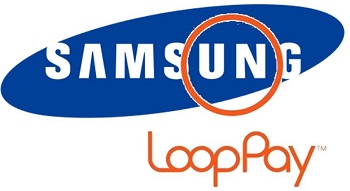Samsung has confirmed that it will be acquiring LoopPay
Samsung has announced that it will, indeed, be acquiring mobile payments technology firm LoopPay. Rumors concerning this acquisition have been circulating for some time, bolsters by Samsung’s growing interest in mobile payments. The acquisition is expected to help Samsung better compete in the mobile commerce space, which has become filled with companies that are seeking to gain the favor of mobile consumers throughout the world. The acquisition may also hint at Samsung’s future efforts in the mobile commerce space.
Firm develops technology that can turn conventional point-of-sale systems into mobile payments terminals
LoopPay develops technology that is capable of giving 90% of conventional point-of-sale systems the ability to accept mobile payments. This technology has become quite valuable, as more retailers are looking to accept mobile transactions in their physical stores. Many of Samsung’s most recent devices are able to conduct mobile transactions, but relatively few retailers support these payments physically. That is changing as mobile commerce continues to prove that it is a powerful force, pressuring more retailers to embrace mobile point-of-sale systems.
Samsung may be developing its own mobile payments system in order to compete with other companies
 Samsung is rumored to be developing its own mobile payments platform, called Samsung Pay. This platform is likely to be based off technology developed by LoopPay. This technology would be used by retail partners in order to accept mobile payments through the new service. Samsung has not yet revealed details concerning this potential platform or whether or not it will be working with retailers to launch a new mobile payments service.
Samsung is rumored to be developing its own mobile payments platform, called Samsung Pay. This platform is likely to be based off technology developed by LoopPay. This technology would be used by retail partners in order to accept mobile payments through the new service. Samsung has not yet revealed details concerning this potential platform or whether or not it will be working with retailers to launch a new mobile payments service.
Competition may be difficult, as other companies have a well established place in the mobile commerce field
Samsung has been relatively slow to enter into the mobile commerce field on its own. The company is currently set to compete with others, such as Apple and Google, in order to gain the favor of mobile consumers. Competition is likely to be fierce, as both Apple and Google already have a well established presence in the mobile payments space.
Two recent studies has shown that device users still aren’t ready to shop and pay with their gadgets.
Although smartphones are rapidly making their way into the hands of virtually every American, nowadays, mobile commerce and payments are falling way behind the many other uses that people have for their gadgets.
This, according to the results of two different surveys that looked into the use of mobile devices.
According to research from Informate Mobile Intelligence, the average American smartphone user currently spends about 4.7 hours on his or her device, every day. That represents about thirty percent of their waking time. That research was conducted in December 2014, and shoed that device users in the U.S. are greatly likely to have access to applications for mobile commerce and payments. The reach for shopping apps, at that time, was 59 percent, and for mobile payments apps, it was 49 percent.
That said, despite the reach, mobile commerce and payments aren’t appealing to American consumers as they could.
 A second survey, this one by Placeable, which involved the participation of one thousand consumers in the United States, said that while the mobile apps may be there, people simply aren’t using them. That survey determined that 42 percent of smartphone owners had never made a purchase on their device. Moreover, only 9 percent of those who had access to mobile payments said that they actually used them.
A second survey, this one by Placeable, which involved the participation of one thousand consumers in the United States, said that while the mobile apps may be there, people simply aren’t using them. That survey determined that 42 percent of smartphone owners had never made a purchase on their device. Moreover, only 9 percent of those who had access to mobile payments said that they actually used them.
The survey pointed out that this also doesn’t necessarily mean that shoppers aren’t using their mobile devices as a part of their purchasing process. The research indicated that 6 out of every 10 consumers will use their smartphones at some point during the shopping process when they are shopping for a product online or even in-store. However, the actual purchase is not being made over that device. That is occurring over PC or at the store’s checkout counter.
While other research has indicated that mobile security could be in the way of the use of these options over smartphones, Placeable suggested that this may not entirely be the case. Nearly 70 percent of participants in the survey said that they were willing to trust shopping over mobile commerce or making smartphone based payments. The reason that they are not using them is that they don’t see the need.
 Samsung is rumored to be developing its own mobile payments platform, called Samsung Pay. This platform is likely to be based off technology developed by LoopPay. This technology would be used by retail partners in order to accept mobile payments through the new service. Samsung has not yet revealed details concerning this potential platform or whether or not it will be working with retailers to launch a new mobile payments service.
Samsung is rumored to be developing its own mobile payments platform, called Samsung Pay. This platform is likely to be based off technology developed by LoopPay. This technology would be used by retail partners in order to accept mobile payments through the new service. Samsung has not yet revealed details concerning this potential platform or whether or not it will be working with retailers to launch a new mobile payments service.
 A second survey, this one by Placeable, which involved the participation of one thousand consumers in the United States, said that while the mobile apps may be there, people simply aren’t using them. That survey determined that 42 percent of smartphone owners had never made a purchase on their device. Moreover, only 9 percent of those who had access to mobile payments said that they actually used them.
A second survey, this one by Placeable, which involved the participation of one thousand consumers in the United States, said that while the mobile apps may be there, people simply aren’t using them. That survey determined that 42 percent of smartphone owners had never made a purchase on their device. Moreover, only 9 percent of those who had access to mobile payments said that they actually used them.